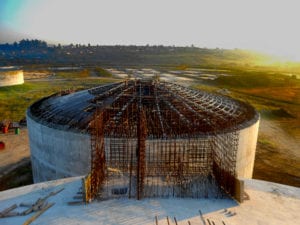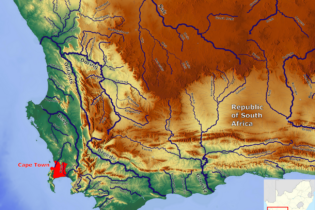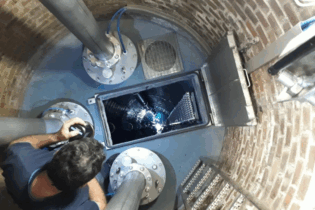Day Zero, predicted for 12 April 2018 in the City of Cape Town, would have been the largest drought-induced municipal water failure in modern history. While it was narrowly averted, some municipalities in South Africa have not been so lucky.
South Africans are starting to understand the importance of water conservation and the implications of ageing and inefficient water and wastewater infrastructure. The diversity of water and sanitation projects in Mariswe’s portfolio testifies to the experience accumulated by this South African civil engineering consulting firm in its 48-year history. It also shows the many complex factors that must be combined to create a stable and sustainable water culture. “Our biggest asset is a highly motivated and agile team of experts that has undertaken numerous projects throughout Africa,” says Louis Uys, head: Water and Sanitation Division, Mariswe. “Our expertise spans the full water cycle – from water resource planning and the design of water treatment and supply infrastructure, to sewage collection, wastewater treatment works (WWTWs) and effluent management. We also provide services in hydrology, floodline determination, river diversions, canals and irrigation.” “While these projects illustrate Mariswe’s experience in the water and wastewater space, they are also a microcosm of the input we need to ensure safe and secure clean water and functioning sanitation for all on the African continent,” adds Nonkululeko Sindane, CEO of Mariswe. “Water is a social need, a human right, and a vital cog in our economic future. This dovetails with Mariswe’s ethos of ‘Improving Lives. Engineering Solutions’.”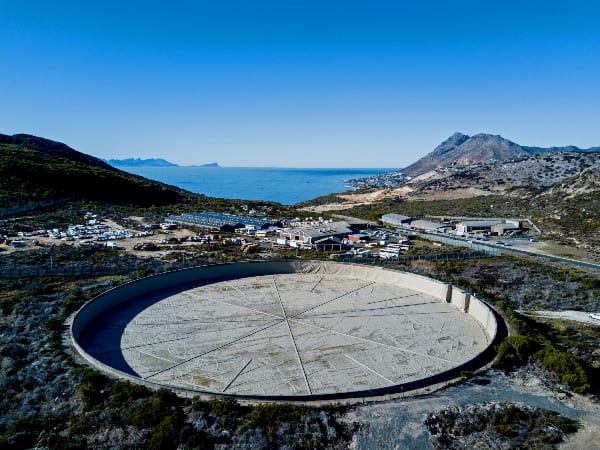
National Water and Sanitation Master Plan
Where does a water-scarce country like South Africa start on the path to create a sustainable water supply and create certainty around future water security? Sandra Munnik, head: Infrastructure Planning Division, Mariswe, explains that the firm was part of a team that developed the National Water and Sanitation Master Plan for the Department of Water and Sanitation (DWS). The project, completed in October 2019, prioritises actions and investments required in the next 10 years to ensure a water-secure future, supporting inclusive development across the country. “The plan needs to be implemented by the entire South African water sector to achieve the government’s goals and objectives for water and sanitation services,” says Munnik. This is a great place to be in for the DWS, asserts Sindane. “We have learnt a few hard lessons in what happens if there is a lack of planning. All the relevant departments, from national to local government, as well as citizens, need to work together to achieve the security and quality of water we need.”Integrated Vaal River System Reconciliation Strategy
Another DWS project that aims to achieve sustainable water supply for the inland provinces of South Africa involves a study to reconcile current and future water requirements with the available water in the Integrated Vaal River System. This includes implementing measures to increase available water, save water through water conservation and water demand management, and improve water quality in the river systems. Mariswe is proud to be involved in this strategic project that illustrates the link between water conservation, infrastructure renewal and the management of demand for commercial, agricultural and community use. In addition to critical socio-economic demand, a country cannot grow food or run industries without water, Sindane points out.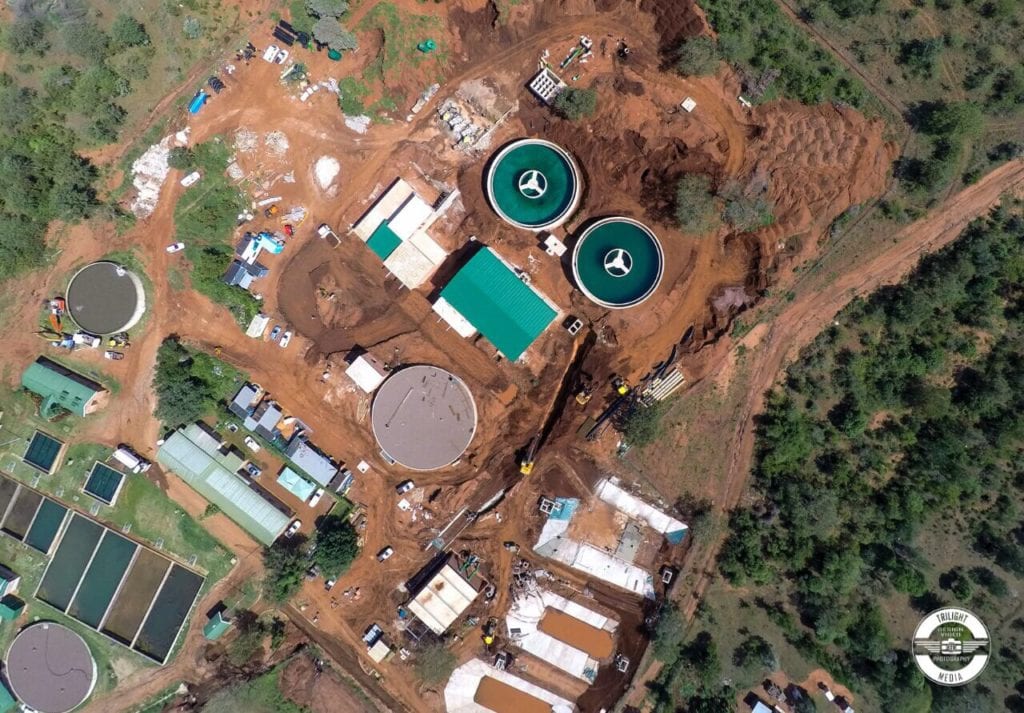
City of uMhlathuze water reuse PPP
Creative solutions are required to preserve this precious resource and the City of uMhlathuze in northern KwaZulu-Natal has prioritised the treatment and reuse of large quantities of wastewater in an innovative bid to use recycling to save both waterand costs.
Mariswe was appointed to conduct a feasibility study that was completed in 2019 and has since been appointed for the procurement of a public-private partnership (PPP) agreement for this 75 Mℓ/day water reuse project.
“The project entails the collection and treatment of domestic and industrial wastewater from the Richards Bay and Empangeni areas, and the distribution of the reuse water to industrial off-takers in Richards Bay,” reports Annalize Visser, project manager, Mariswe. “These kinds of interventions are going to become more common with the reality of climate change and the need to conserve resources.”Upgrading of infrastructure
Ageing, inefficient water infrastructure cannot meet the demands of a growing population. The upgrading and expansion of existing water treatment and storage infrastructure are key to meeting increasing demand and improving quality of supply. Mariswe has played a role in scores of such projects across Southern Africa. Current projects include the expansion of the chlorination system at the Vaalkop Water Treatment Plant from 270 Mℓ/day to 360 Mℓ/day; emergency repairs to the Jabulani Reservoir Complex in Soweto; and the upgrading of the Outapi Water Treatment Works (WTW) near Oshakati in northern Namibia to provide a new283 m3/h capacity WTW. Two of the more complex treatment projects recently designed by Mariswe in South Africa are the expansion and upgrading of the Mthatha WWTW in the Eastern Cape and the upgrading of the Durban Heights WTW for
Umgeni Water. The upgrading of the Shemula WTW in northern KwaZulu-Natal is another Mariswe project requiring the skill to combine old systems with new technology to provide quality water solutions for multiple communities well into the future. This is a good compromise that avoids costly investment in new infrastructure when funding is constrained.
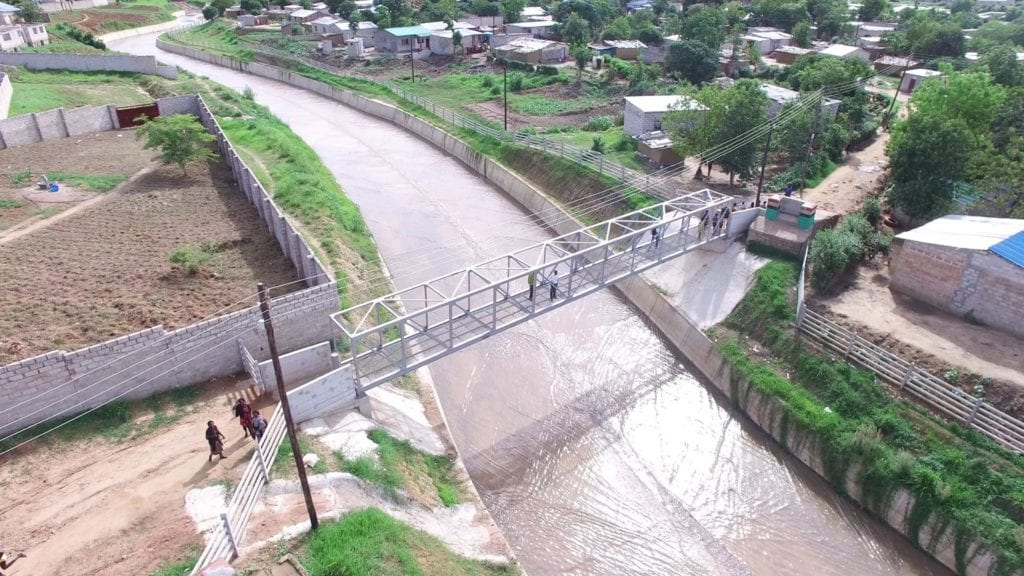
International commissions
Mariswe’s major international breakthrough in water treatment projects came in the form of the Lower Ruvu Water Treatment Plant Expansion in Tanzania, which supplies 75% of the water requirements of Dar es Salaam. Mariswe was responsible for the review of all designs and equipment, contract administration and site supervision, witness testing and endorsement of equipment supplied, as well as health and safety oversight. The plant capacity was increased from 180 Mℓ/day to 270 Mℓ/day, with provision for further expansion to 360 Mℓ/day. The firm was subsequently engaged as construction supervision engineer for six large water infrastructure projects in Lusaka, Zambia. Collectively known as the Lusaka Water Supply, Sanitation and Drainage (LWSSD) project, this was Mariswe’s largest award ever. It included upgrading the bulk water supply infrastructure and distribution network; new potable water storage infrastructure and reticulation networks; new waterborne sewage infrastructure; the upgrading and expansion of the sewage treatment works; and the construction of 30 km of stormwater canals. As part of its social responsibility in this project, Mariswe replaced an unsafe structure used by all, particularly children and the elderly, with a new pedestrian bridge. “These projects illustrate Mariswe’s ability to provide multidisciplinary services across the whole water spectrum,” Sindane points out. The firm’s new Strategic Projects Unit (SPU) aims to leverage this expertise by offering innovative solutions over the full life cycle of projects – from feasibility studies through capital development, operation and maintenance, to project closure. The SPU’s mandate will encompass turnkey solutions for private sector clients, including sourcing project funding and extending to the sale of commodities produced, such as water, to end-users. “We will continue to do what we are doing, and we’ll do it well,” asserts Sindane. “However, the SPU is an exciting step up that will help make Mariswe more relevant to future needs in a South African and anAfrican context.”


